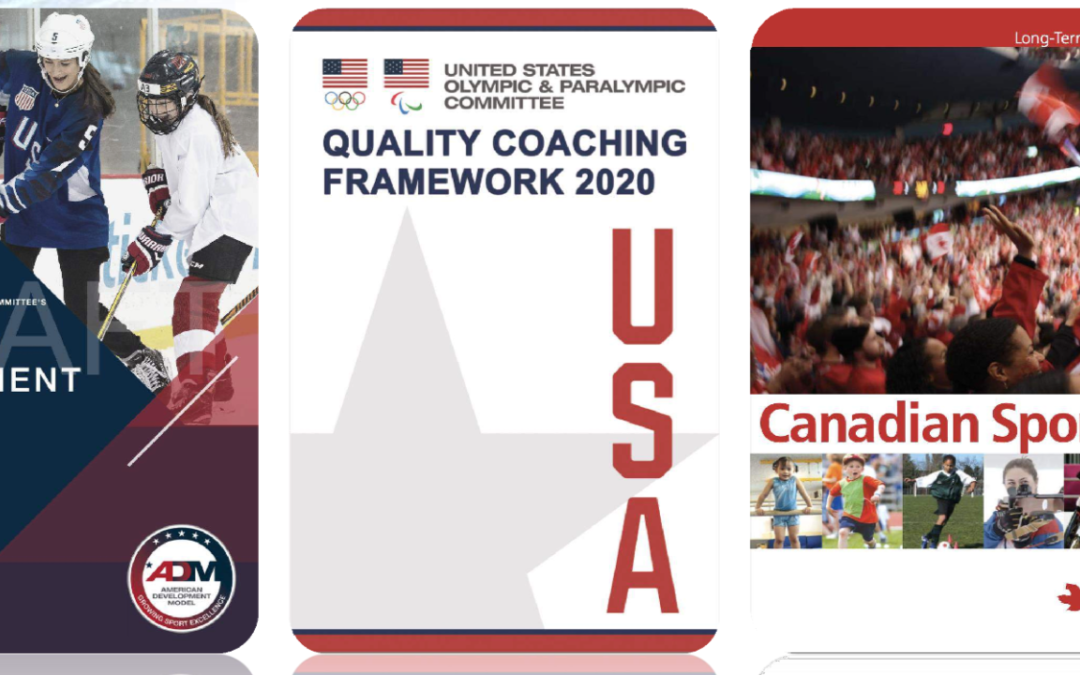The Coach Education Conundrum
Article written by FSQ’s Director of Sport, Matt Young
This week, we had the opportunity to engage with a German-based company dedicated to improving the quality of information provided to athletes. This desire is rooted in addressing the perceived gaps in coach education within their country and sport system. FYI Germany is renowned for its high standards of professionalism in coach education, in comparison to that in North America.
As we’ve discussed previously, the North American coaching model disproportionately invests in coaches at the elite levels, often overlooking the development and compensation of coaches at the grassroots level of sport. This approach is counterintuitive, especially when considering the success of Scandinavian countries, where the best coaches are often found coaching players and coaches at the entry levels—a key factor in their successes on the international stage despite smaller populations.
In Canada, we face a similar challenge across different sports. Despite implementing rigorous measures, such as year-long, high-cost licensing programs, we still struggle to achieve widespread success in coach education. While there are many factors at play, today, we’ll explore the top five reasons our coach education models are falling short, based on the feedback we’ve received.
- The Scarcity of Coach Developers: In many regions, the concept of a coach developer—someone specifically trained and skilled in teaching and mentoring coaches—is virtually non-existent. This gap in the system has far-reaching implications on the quality and effectiveness of coaching at all levels. Coach developers play a crucial role in ensuring that coaching education is not just about transferring knowledge, but about fostering real understanding and growth of how to teach coaching methodologies, mentor coaches through real-world challenges, and bridge the gap between theory and practice.
- Ego: Ego is a significant barrier to effective coach education, rooted in the complex dynamics of sport at various levels. A common misconception persists: “I know better than you.” This belief, prevalent across many sports, fosters a resistance to external input, particularly when it comes from perceived outsiders or less experienced individuals. This resistance is often compounded by a disdain for being told what to do, especially in an environment where autonomy and self-reliance are highly valued.
- Timing of Coach Development: When coach development is introduced, it often comes at a time when volunteers are already overwhelmed with their existing responsibilities. Unfortunately, in the current model, coach development usually appears as a last-minute requirement squeezed into an already-packed schedule, often right before the season begins. The focus shifts from learning and development to simply checking a box, leading to a superficial engagement with the content and no subsequent follow-up mentorship or implementation accountability.
- Curriculum & Content: In a significant portion of coach education, the emphasis is placed heavily on the technical and tactical aspects of coaching. The curriculum often revolves around drills, skills, lesson plans and time management. While these elements are undoubtedly important, they represent only a fraction of what effective coaching entails. Despite widespread recognition that sport is at least 75% mental, coach education programs rarely focus on developing the psychological, emotional or interpersonal skills that are essential for holistic success on and off the field. “Unfortunately, the art of coaching—the why behind the measurements and how to translate that into impactful sessions and strong relationships—is rarely, if ever, addressed in these programs”.
- Cost & Access: While developing coaches into effective leaders is essential for the success of sports programs, it should not be treated as a revenue generator for organizations. When coach development becomes overly commercialized, it creates barriers that can discourage participation, especially among volunteers and those at the grassroots level. This isn’t to say that coach education should be free—there is value in investing in one’s development and a reasonable cost can reflect the quality and importance of the training provided. However, the pricing must be accessible and fair, ensuring that it doesn’t exclude those who are passionate about coaching but may not have the financial resources to afford expensive courses. Additionally, the ease of access is paramount. Many coaches, particularly volunteers, juggle their coaching responsibilities alongside full-time jobs, family commitments and other obligations.
Five Solutions to Improving Coach Education
- Offering Value: To truly engage coaches, coach education programs must offer value that extends beyond the technical and tactical aspects of sport, to them. This means incorporating life skills, leadership training and personal development into the curriculum. By emphasizing how coaching skills can be applied in various areas of life—such as in careers, personal relationships and community involvement—programs can attract a broader audience and create more well-rounded coaches. Offering certifications or qualifications that are recognized in both sports and broader professional contexts can also enhance the perceived value and encourage greater participation.
- Create a Coach Pipeline with Integrated Developer Support: This pipeline should include various stages of development, from introductory courses for new coaches to advanced training for those aiming to specialize or move into leadership roles. At each stage, there should be access to dedicated coach developers who can provide personalized mentorship, feedback and ongoing support. By integrating coach developers into the pipeline, coaches can receive continuous guidance, ensuring that they are not only gaining knowledge but also applying it effectively in their unique coaching environments.*Hint; Colleges & Universities.
- Incorporate All Pillars of Development: A comprehensive coach education program must address all pillars of development: technical, tactical, physical, mental, emotional and interpersonal. By designing courses that equally emphasize these pillars, coaches can develop a holistic understanding of their role. Programs should include modules on mental health, athlete psychology, communication skills and leadership, ensuring that coaches are equipped to handle the full spectrum of challenges they will face. This approach will create more adaptable and empathetic coaches who are better prepared to support their athletes both on and off the field.
- Make Coach Education Cost-Effective and Accessible: This can be achieved by offering tiered pricing models, where basic courses are available at low or no cost and more advanced, specialized training is offered at a reasonable fee that reflects its value. Additionally, programs should be accessible in various formats, including online courses, weekend workshops and self-paced modules, to accommodate different schedules and commitments. Partnerships with community organizations, schools and sports clubs can also help subsidize costs, making high-quality education available to all, regardless of financial background.
- Ensure Accountability with Flexibility and Nuance in Delivery: Accountability is key to ensuring that coaches not only complete their education but also implement what they’ve learned effectively. However, this accountability must be balanced with flexibility and nuance in how the education is delivered. Coaches should be able to tailor their learning experience to fit their specific needs, goals and coaching environments. This could involve personalized learning plans, options to focus on particular areas of interest and assessments that measure both knowledge and practical application. Regular check-ins with coach developers or mentors can help track progress, provide feedback and adjust the learning path as needed, ensuring that the education is both relevant and impactful.
By implementing these solutions, coach development programs can become more valuable, accessible and effective, ultimately leading to better coaches, stronger teams and a more sustainable sport system.

